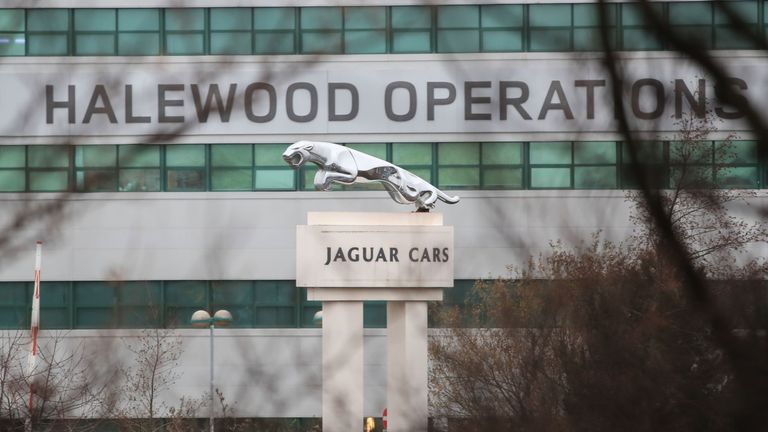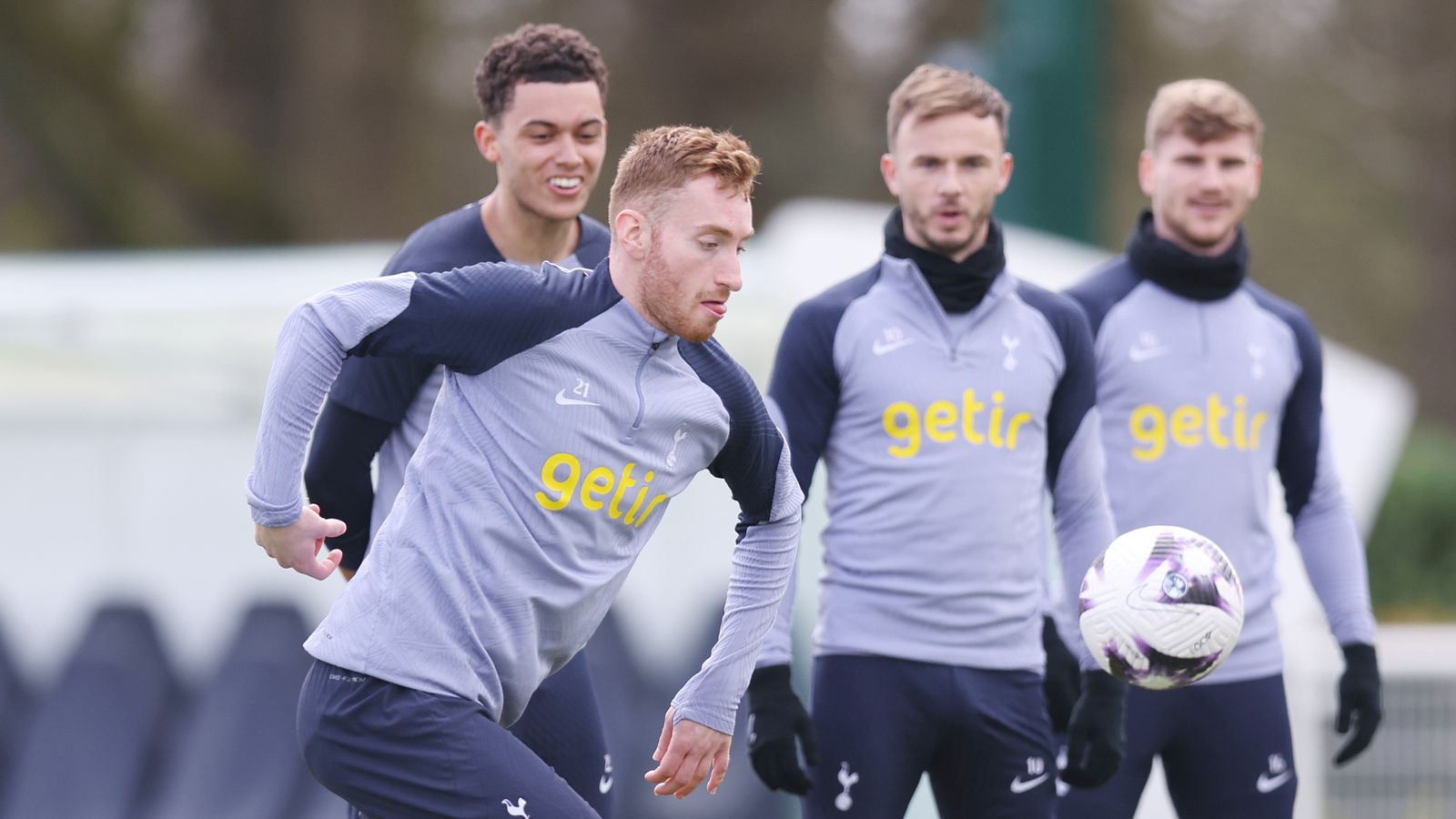Britain’s biggest carmaker Jaguar Land Rover has reported an annual loss for the third year in a row and warned of an increasingly tough battle to overcome supply chain problems.
The company, owned by India’s Tata Motors, reported a pre-tax loss of £861m for the year to the end of March, after posting a shortfall of £422m a year earlier and a record £3.6bn loss in 2019.
Like other car makers it has faced production problems caused by a worldwide shortage of semiconductors, or chips, used in the making of its vehicles.
JLR said its improved sales and underlying profits in the first three months of 2021 showed a continued recovery from the impact of the COVID-19 pandemic – including two months last spring when its factories were forced to close.
But for the year as a whole vehicle sales volumes were down 13.6% at 439,588 and by value sales fell 14.2% to £19.7bn.
A major shake-up of the business announced earlier this year knocked £1.5bn off the bottom line, sending JLR into the red for the year again.
JLR – owned by India’s Tata Motors – said increasing COVID vaccination rates were encouraging for global economic prospects and the car industry.
“However, cases are still high in many markets while supply chain issues, in particular for semi-conductors, have become more difficult to mitigate and are now impacting production plans for Q1,” the company said.
“The company is working closely with affected suppliers to resolve the issues and minimise the effect on customers.”
The supply chain issues were blamed on the pandemic rather than Brexit – an issue that JLR had previously warned could cause significant problems in the event of a no-deal departure from the EU.
A spokesperson told Sky News: “Whilst there were some initial operational frictions from Brexit, we were quite effective at adapting to that and working with suppliers to minimise impact.”
The annual results were the first presented by chief executive Thierry Bollore, who said he was “encouraged by the company’s resilience and strong recovery during a uniquely challenging year”.
He added: “Jaguar Land Rover is well placed to emerge from the pandemic as a stronger and more resilient company that is able to navigate and capitalise on the opportunities ahead.”
Last month the global ship shortage resulted in JLR temporarily suspending production at two UK plants. Honda’s soon-to-close UK plant at Swindon and BMW’s Mini factory in Oxford have also been affected by supply chain issues.
US carmaker Ford has said the shortage could see it cut production by half in the current quarter.
Industry data published by the Society of Motor Manufacturers and Traders (SMMT) suggested that the semiconductor was hampering the UK car industry’s recovery from the pandemic.
Its figures showed the number of cars rolling off production lines in March was about 30,000 lower than was typical for the month.








